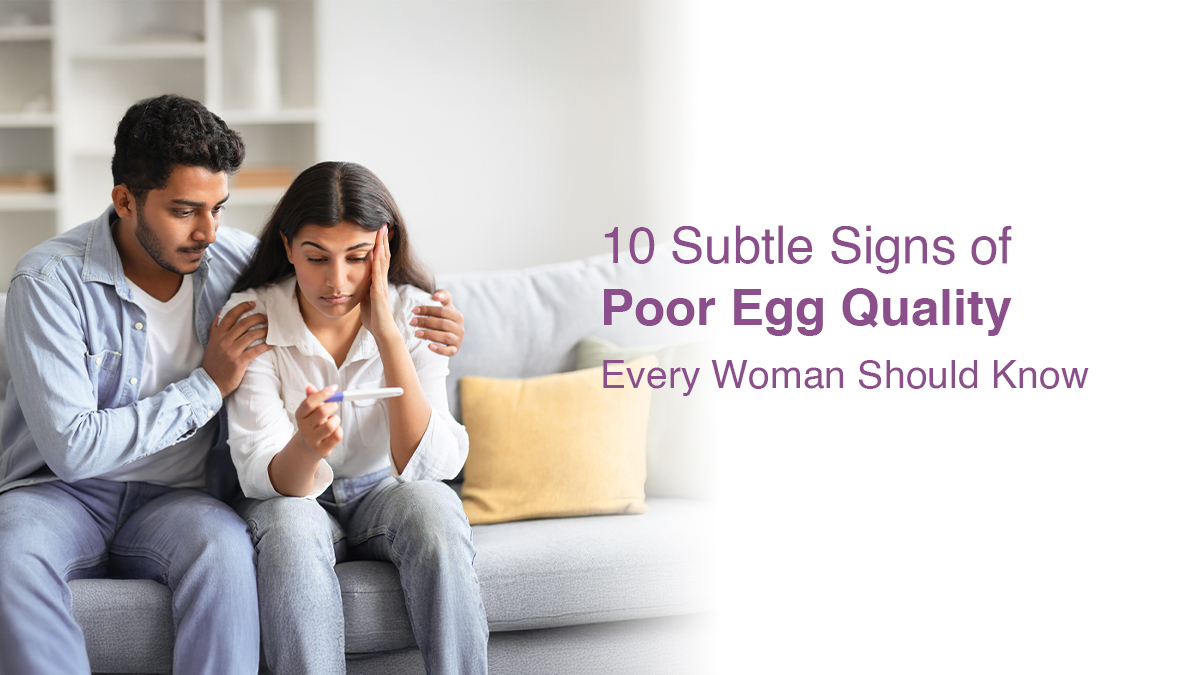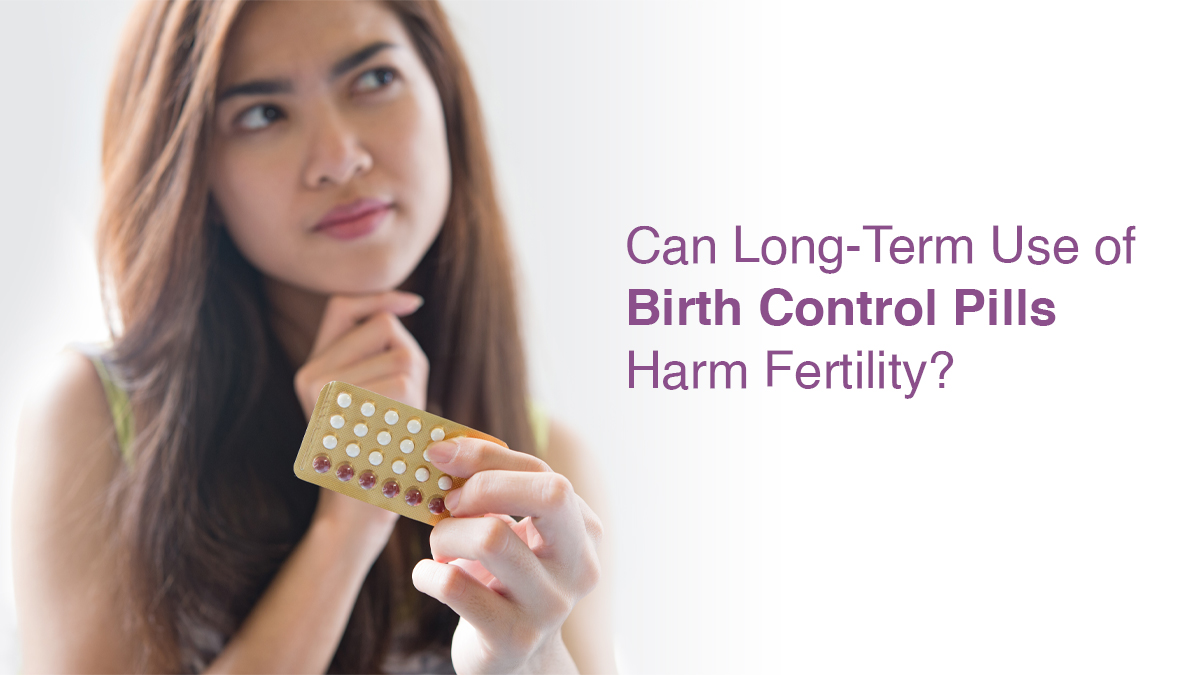
Can Lifestyle Affect Egg Quality?

Our lifestyle choices play a critical role in our reproductive health. For instance, the Anti-Mullerian Hormone (AMH) is an indicator of the quantity and quality of the eggs in the ovaries a prerequisite for a healthy pregnancy. However, research shows that 31% of Indian women under the age of 30 and 51% between 30 and 35 years have low serum AMH levels. Unhealthy lifestyle habits may contribute to a decline in AMH. This is worrisome because low AMH limits your chances of natural conception. Therefore, learning about the signs of poor egg quality and lifestyle factors that may cause it, is critical, especially if you are planning to start a family.
What is Poor Egg Quality?
Egg quality refers to the genetic characteristics of an ovum (egg). A good quality egg has high viability and higher chances of growing into a healthy embryo upon fertilization. A good quality egg has 23 genetically normal chromosomes while an unhealthy egg may have fewer or more chromosomes. A poor-quality egg may develop genetic abnormalities upon fertilization.
Signs of Bad Egg Quality
If you are planning to conceive in the near future, learning about and checking for the signs of bad egg quality is important.
Irregular Periods
The most common sign of deteriorating egg quality is an abnormality in the duration of your menstrual cycle. Your periods may come much earlier than expected or may be delayed excessively.
Changes in Menstrual Flow or Cycle
An increase or decrease in the number of menstruating days or a change in the flow is a known sign of poor egg quality.
Inability to Conceive
Women with over 75% of low-quality eggs may face difficulties in getting pregnant. It is a good idea to consult a fertility specialist if you have been trying to conceive for over six months but have failed.
Repeated Miscarriages
Poor quality eggs may not survive the early stages of pregnancy (first trimester). Repeated miscarriages, due to the inability of the fertilised egg to develop into a healthy baby, is a prominent signs of bad egg quality in women.
Age
While age is just a number, it is an important one when it comes to fertility. This is because chromosomal abnormalities, common in eggs, significantly increase with age. While women in their 20s may have about 25% of eggs with chromosomal abnormalities, the number reaches over 40% for women in their 30s. In fact, the occurrence of low-quality eggs increases by 0.5% per month once you cross the age of 35.
Other signs of bad egg qualitydo not have observable symptoms but can be identified through diagnostic tests. These include:
Blood Tests
- High levels of follicle-stimulating hormone (FSH)
- Low oestradiol (the most common form of oestrogen) levels
- Low AMH levels
Sonography/Ultrasound
- Low follicular count
Lifestyle Factors Affecting Egg Quality
There are several reasons for poor egg quality, lifestyle being a critical one.
Exercise and Physical Activity
Lack of regular exercise and physical activity may hamper egg quality in women.
Weight Management
Overweight and underweight women have higher chances of ovulatory dysfunction, which may cause a deterioration in egg quality.
Smoking and Alcohol Consumption
Smoking and excessive alcohol intake lead to endocrine dysfunctions that may result in poor-quality eggs in women of reproductive age.
Stress and Mental Health
Excessive stress increases follicular cortisol levels, which affects egg quality.
Sleep and Rest
Inadequate sleep and rest adversely affect reproductive health. Lack of sleep can affect the melatonin production cycle,which can result in the ova losing their viability.
Environmental Toxins and Egg Quality
The environment we live in is loaded with toxins, microplastics and other harmful substances. Three substances that most significantly impact egg quality are bisphenol A (BPA), phthalates and polybrominated diethyl ethers (PBDEs). They accelerate the rate of inferior-quality egg production in women.
Related Read: Tips to Improve Egg Quality
When to Seek Professional Help
If you have been trying to conceive for over six months or observe any of the above-mentioned signs of bad egg quality, you should consider visiting a fertility specialist. The specialist may advise a series of diagnostic tests to identify the underlying reason for poor egg quality.
Can I get pregnant with poor egg quality?
If this is one of your concerns, you can put your worries to rest. Fertility specialists at reputed clinics can advise you on the right course of treatment for poor egg quality to help you increase the chances of natural conception. However, in severe cases, they may recommend assistive reproduction techniques (ARTs), such as IVF, to fulfill your parenting dreams.
Conclusion
Deteriorating egg quality among Indian women is a growing concern among medical professionals and a cause for worry among couples who desire to be parents. Lifestyle changes can help improve egg quality. Seeking guidance from fertility experts at reputed clinics, such as Oasis Fertility, can improve your chances of becoming a parent. Find an Oasis Fertility Clinic near you or call 1800-3001-1000. You can also use our live chat facility for immediate assistance.
How to know if egg quality is poor?
A: You might have poor egg quality if you notice irregular periods, changes in your menstrual flow, trouble getting pregnant, or multiple miscarriages. Age is also a big factor—egg quality tends to decline as you get older. If you’re concerned, a fertility specialist can run tests, like checking hormone levels or doing an ultrasound, to see if egg quality might be an issue.


fill up the form to get a
Free Consultation
Avail 0% interest on EMI
All Procedures | No Upper Limit
Frequently Asked Questions
Can I get pregnant with low egg quality?
Can you fix poor egg quality?
How to know if egg quality is poor?
How we reviewed this article:
- Current Version
- November 14, 2024 by Oasis Fertility






